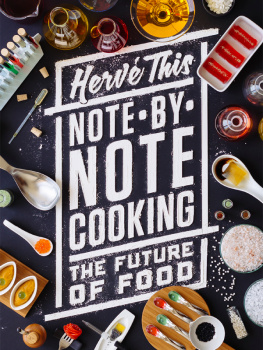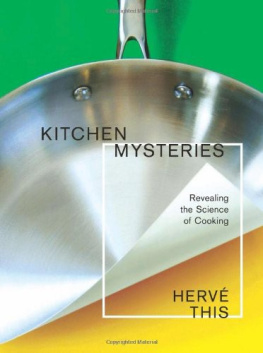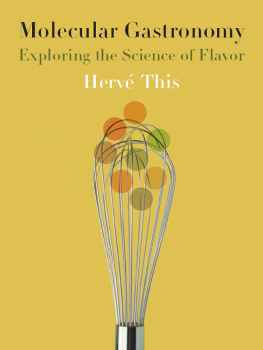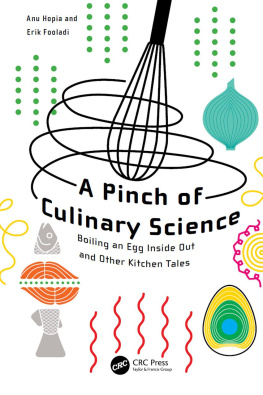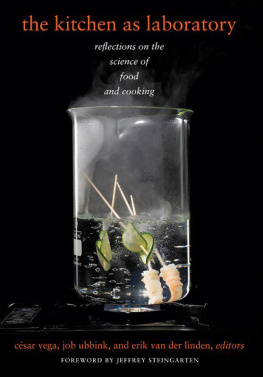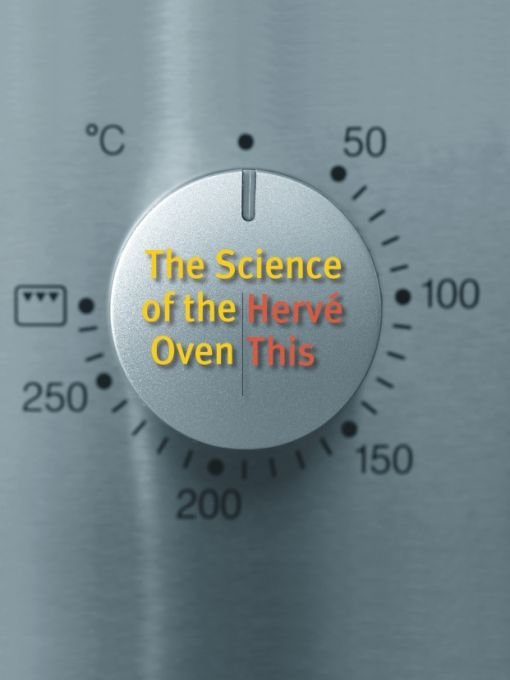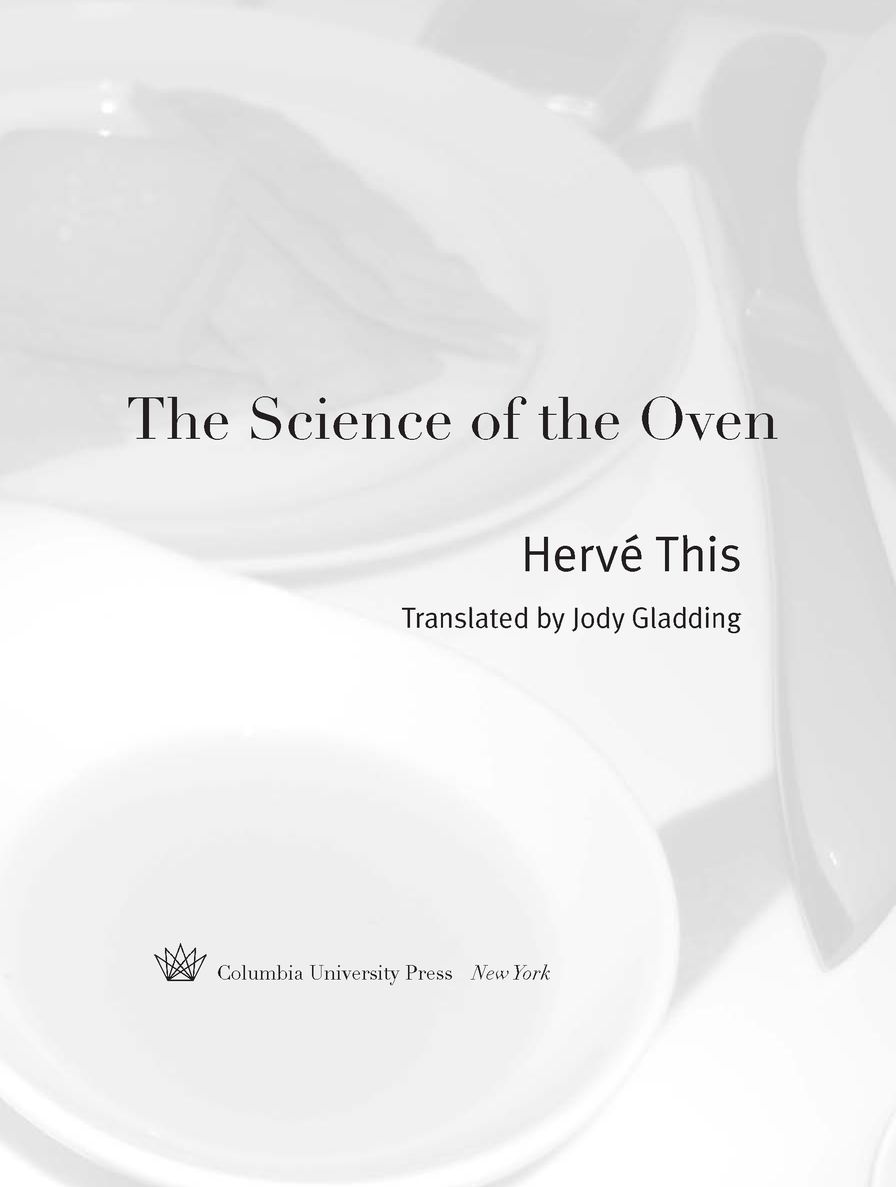Table of Contents
ARTS AND TRADITIONS OF THE TABLE
Albert Sonnenfeld, Series Editor
Salt: Grain of Life, Pierre Laszlo, translated by Mary Beth Mader
Culture of the Fork, Giovanni Rebora, translated by Albert Sonnenfeld
French Gastronomy: The History and Geography of a Passion, Jean-Robert Pitte, translated by Jody Gladding
Pasta: The Story of a Universal Food, Silvano Serventi and Franoise Sabban, translated by Antony Shugar
Slow Food: The Case for Taste, Carlo Petrini, translated by William McCuaig
Italian Cuisine: A Cultural History, Alberto Capatti and Massimo Montanari, translated by ine OHealy
British Food: An Extraordinary Thousand Years of History, Colin Spencer
A Revolution in Eating: How the Quest for Food Shaped America, James E. McWilliams
Sacred Cow, Mad Cow: A History of Food Fears, Madeleine Ferrires, translated by Jody Gladding
Molecular Gastronomy: Exploring the Science of Flavor, Herv This, translated by M. B. DeBevoise
Food Is Culture, Massimo Montanari, translated by Albert Sonnenfeld
Kitchen Mysteries: Revealing the Science of Cooking, Herv This, translated by Jody Gladding
Hog and Hominy: Soul Food from Africa to America, Frederick Douglass Opie
Gastropolis: Food and New York City, edited by Annie Hauck-Lawson and Jonathan Deutsch
Eating History: Thirty Turning Points in the Making of American Cuisine, Andrew F. Smith
The impossibility of isolating nomenclature from science and science from nomenclature stems from the fact that all physical science is necessarily based on three things: the series of facts that constitute the science, the ideas that recall them, the words that express them.... Since it is words that preserve ideas, and transmit them, the result is that languages cannot be perfected without perfecting science, nor science without language.
Antoine Laurant de Lavoisier, Trait de chimie
Into the Mouth
What is cooking? And why do so many of us enjoy it? Basically, if cooking consists of roasting meat, tenderizing vegetables in water, binding sauces, kneading dough... there is not really much to making... a dish.
Roasting meat? The steps are dishearteningly banal: You take a piece of meat, put it on a spit, heat it, take it off the spit. Many of those who cook on a daily basis grow weary of this chore that an allocation of domestic tasks assigns them.
Tenderizing vegetables by cooking them English style? The term hardly hides the intellectual poverty of the work: Just take a saucepan, fill it with water, maybe add a handful of coarse salt (what a noble gesture!), heat it (in the past, there was the uncertainty of lighting a fire, but today, the electric burner comes on every time), then put in the vegetables and wait. Can we elevate our minds through such basic gestures? Even those devoted to the Zen art of tea or archery will find it hard to persuade themselves that dropping vegetables into a saucepan requires an infinitely moral asceticism!
Binding a sauce? No need for a Harvard education to do that. To the juices you want to thicken, you can either add a few spoonfuls of flour or whisk in fat or some sort of protein (found in an egg, blood, etc.) generally without knowing you are doing so, and heat gently.
Kneading? That is not difficult either; you stretch, fold, stretch, fold, stretch, fold....
So why cook, except to fill the stomach and simply survive? Because, if none of the aforementioned techniques is difficult, all are mysterious when you stop to examine their effects. For example, when mayonnaise takes, it is a matter of liquids (egg yolk, vinegar, oil) that form a semisolid consistency; when an egg coagulates, it is a liquid that hardens when heated, whereas solids melt when heated; when meat is roasted, its surface browns and acquires flavor.... What accounts for these transformations, which are extraordinary in the most literal sense of the term?
Yes, the boredom of cooking only affects those who casually pass over such phenomena without seeing them, those who limit themselves to techniques without paying attention to the results. And so.... The act of cooking is boring when it is solely technique, without technology, science, or art.
IMPOSSIBLE TECHNOLOGY!
Technique is doing it, and the very existence of those who are bored by cooking proves that doing it can be the execution of the gesture alone, with no thought to the way the gesture is done. That said, why is it that those bored cooks do not take advantage of the technological potential technique offers them? The question calls for a specific response to cooking, the last chemical art left unsystematized until the creation of its scientific discipline, molecular gastronomy.
Why do we still cook as we did in the Middle Ages, with whisks, fire, and saucepans? Why this outdated behavior, when, at the same time, humanity is sending probes to the outer limits of the solar system? Why do our recipes hardly differ from those found in the Viandier, a treatise by Guillaume Tirel, known as Taillevent, who lived in the fourteenth century and whose recipes, moreover, hardly differ from those in Apiciuss De re coquinaria, a collection of texts assembled between the fourth and fifth century AD? Why this noticeable technical stagnation?
Let us look at culinary transformations from the perspective of cooks twenty-five years ago. We have forgotten that when I offered them the use of carrageenans for jelling liquids, ultrasonic sound tanks for emulsifying fats, rotary evaporators for reducing bouillons, the questions that almost invariably arose concerned the safety of my proposals.
It is a truism to state that dishes are made to be consumed and that we cannot eat with impunity every kind of matter whatever, animal, vegetable, or a mixture of the two. It took thousands of years for humanity to learn to recognize (and indeed we are still learning) which plants can be safely consumed, which parts of animals are edible. Cookbooks from the past show that such knowledge is still fresh. Until the twentieth century, mushrooms were identified by bringing them into contact with iron; the poisonous ones were supposed to turn black! Since the Renaissance, pike eggs have been considered toxic, but who is willing to take the risk of verifying this?
Human lives were lost to determine which foods were comestible and which foods were to be avoided. Moreover, the knowledge thus wrested from death, so to speak, is unreliable; smoked products, for example, are loaded with carcinogenic molecules that cause digestive cancers, and many accepted food products warrant reconsideration. Interactions between foods are suspect as well. Humans limited themselves to a small repertoire for fear of dying from what they ate; they were endowed with prudence, which proved their salvation, which is why we retain our medieval behavior with regard to food. And the result is technical stagnation; since to eat anything new is to expose oneself to danger, conservatism is a sound approach and introducing new technology in cooking is next to impossible.
SCIENCE AND TECHNOLOGY
What is more, technology deserves to be broken down a bit. I am distinguishing a local technology, which is limited to the perfecting of old techniques, to the fine-tuning proposed by one with a knack for improvements, from a global technology that makes use of new knowledge contributed by science.


